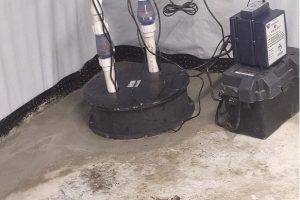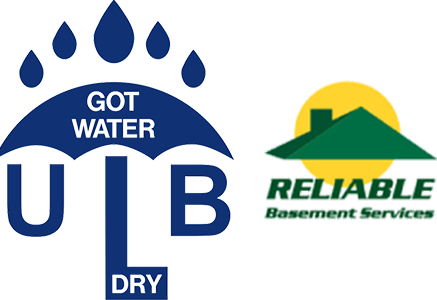
If you know a thing or two about basement waterproofing, then you may have heard the term “sump pump” before. The sump pump is like the beating heart of the basement waterproofing system — it kicks into action and expels groundwater once levels have risen too high, preventing flooding while reducing the risk of foundation cracking in the process.
Are you interested in learning more about sump pumps and how they can benefit your home? This basement waterproofing company in West Chicago, Illinois is going to discuss everything you’ll need to know below.
Understanding the Functionality of Sump Pumps
First, we’re going to discuss how sump pumps work. Sump pumps are installed in holes called sump pits. These holes are dug in the corners of their respective basements, and they are used as access points for the pumps to collect groundwater.
Over time, water levels in sump pits will rise and fall. During times of drought, water levels will be exceedingly low. During heavy storms, water levels will be exceedingly high. It’s during the exceedingly high times that the sump pump kicks into gear.
Once the water level reaches a certain point, the pump detects it and starts pumping it out. It travels through an underground pipe, which empties far away from the base of the house.
The result? No excess ground water can collect around the home’s foundation.
This serves two benefits: 1. It reduces the risk of foundational cracking, and 2. It reduces the risk of the basement taking on moisture.
In essence, if you want to protect your basement from water and water-related damage, a sump pump is a necessity. It could save you thousands of dollars’ worth of damage, if you install a sump pump in West Chicago, Illinois.
The Importance of Using a Backup Sump Pump
In many cases, West Chicago basement waterproofing companies recommend using not just one sump pump, but two. Why is this? Because, during power outages, the primary sump pump might not stay on. This is because they’re dependent on electricity.
Secondary sump pumps, on the other hand, are battery powered. As such, even if the power does go out, they can continue to run. This is vital during heavy storms, many of which result in outages.
Using a backup sump pump is extremely important. It acts as a safeguard in case your primary sump pump were to lose power during a severe storm.
Submersible Pump vs. Pedestal Pump
There are two types of sump pumps in existence. These include submersible pumps and pedestal pumps, each of which have their own upsides and drawbacks.
The more effective of the two is the submersible pump. It can flush out not only water but sediment as well. Note though that it’s expensive, and because it must be submerged within a sump pit, it’s incompatible with some homes’ features.
Those homes must instead use a pedestal pump. This pump stands above the sump pit with a tube going down into the water. While it’s not as effective at pumping out sediment, it’s not as expensive either.
If you need help choosing a sump pump for your home, give your local basement waterproofing company in West Chicago, Illinois a call. They’ll help you not only with the choosing of the pump but with its installation as well.
Looking for the Best Basement Waterproofing Company in West Chicago, Illinois?
As you now know, the sump pump is a vital component in any basement waterproofing system. If you’re looking to waterproof your basement, it’s wise to invest in a sump pump.
Are you ready to install a sump pump? If so, and if you’re looking to partner with the best basement waterproofing company in West Chicago, Illinois, ULB-DRY Waterproofing is here to help. Contact us today at (630) 333-4097 to schedule an appointment.





